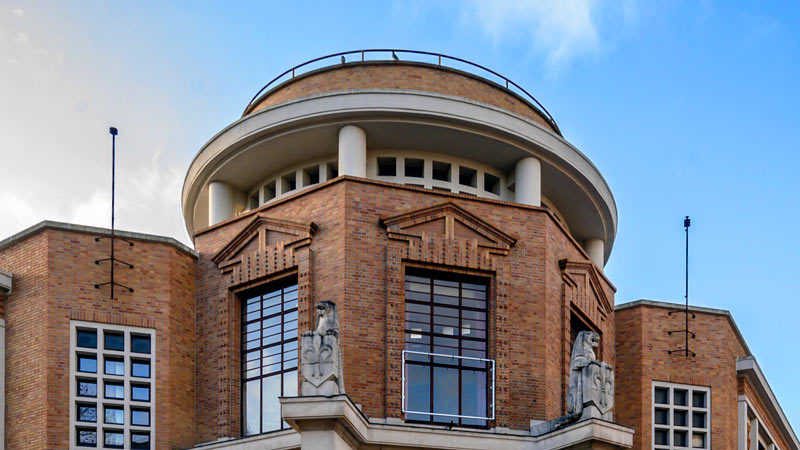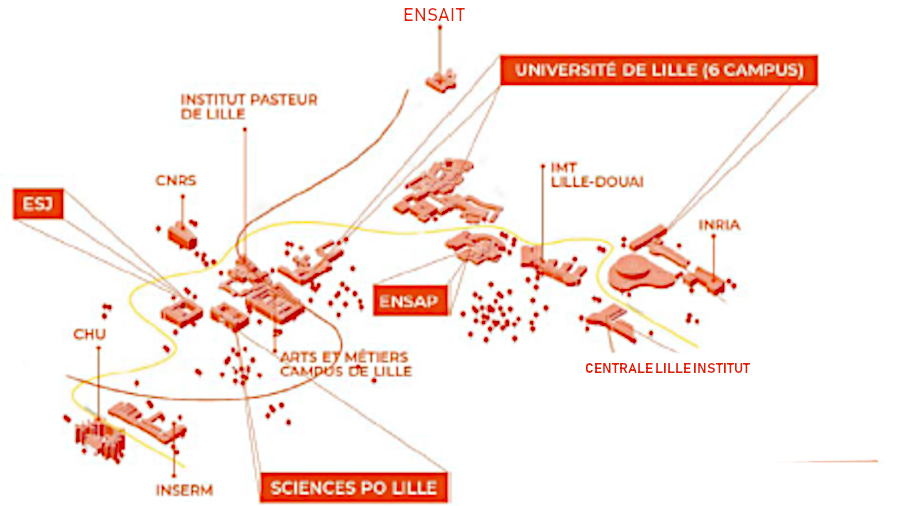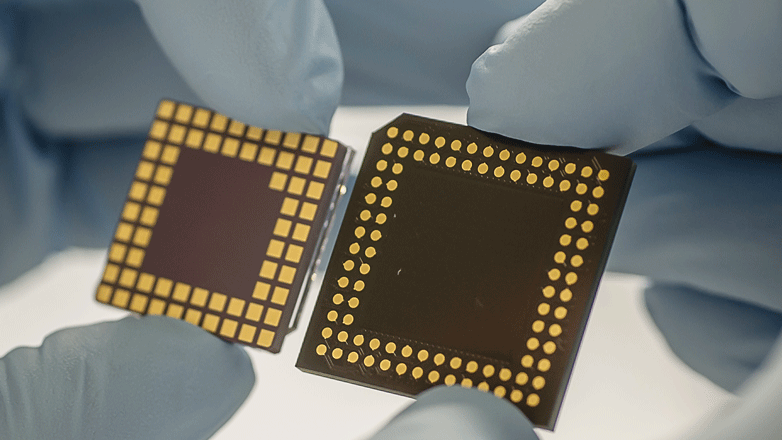The Governing Council determines the university’s strategy, as proposed by the Management Committee. Research, study and university life policy is implemented by two bodies that deal with specific topics.
Main bodies
Governing Council

Determines the institution’s strategic guidelines, based on the recommendation of the Management Committee.
Composition and renewal
44 members
- 16 teaching research staff members and similar staff members
- 6 students
- 6 engineering, administrative, technical, library and health staff members
- 7 ex officio members
- 1 representative of the member institutions
- 8 individuals from outside the university
- in an advisory capacity General Services Manager, Accounting Officer
Term of office: 4 years (students:2 years).
See the list of 44 members
Chairman:PhilippeRollet.
How it works
- Motions adopted by majority vote.
- Quorum: half.
- Meeting frequency: at least 3 times a year.
Powers and terms of office
The Governing Council determines the institution’s strategic guidelines. Members are appointed for a term of 4 years for staff and 2 years for students
The Governing Council elects, by an absolute majority of the members in office, the President of the University of Lille from among the teaching research staff, researchers, professors or lecturers, associates or guests, teaching staff, hospital staff or any other assimilated staff, regardless of nationality, for a 4-year term.
At the first meeting of the Governing Council following the election of the President of the University, the Governing Council elects, on the recommendation of the Management Committee, by a majority of members present or represented, one of its members to chair the Governing Council from among the individuals from outside the university for a four-year term of office.
During plenary sittings
1° On the recommendation of the Management Committee, the full Governing Council determines the institution’s strategic guidelines, particularly in the fields of research, education, university life and international relations. It is responsible for their application. As such:
a) It approves the institution’s contract, which includes the accreditation application adopted by the Study and University Life Council;
b) It approves the objectives and resources contracts with the member schools, faculties and institutes and the objectives contracts with the member institutions, which have been voted on by their councils, on the proposal of the President of the University;
d) It leads the debate on budget guidelines and approves the budget guidance letter;
e) It votes on the budget and approves the accounts;
f) It approves the agreements and conventions signed by the President, in particular framework agreements with research organisations;
g) It approves the annual activity report, which includes an overview, a proposal and information concerning the objectives and resources contracts and how they have progressed, and is presented by the President;
2° It approves the integration of new institutions;
3° Subject to specific conditions laid down by decree, it approves loans, equity investments, the creation of subsidiaries and foundations as provided for in article L.719-12 of the French Education Code, the acceptance of gifts and bequests, and real estate acquisitions and disposals;
4° It authorises the President to take any legal action;
5° It adopts the institution’s internal regulations;
6° It approves the creation or closing down of a member school, faculty or institute.
During sittings restricted to elected members
The Governing Council, during sessions restricted to elected members, deliberates on the following matters:
1° It approves the statutes of the member schools, faculties and institutes that have been adopted by the council of the member school, faculty or institute;
2° On the recommendation of the President of the University, it adopts the multi-year master plan for disability policy and the multi-year action plan for gender equality referred to in article 6 septies of law no. 83-634 of 13 July 1983 on the rights and obligations of civil servants. Each year, the President presents a report to the Governing Council, during a sitting restricted to elected representatives, on the implementation of this plan and action plan, together with results and monitoring indicators;
3° It makes proposals to the President regarding the composition of the mission to ensure gender equality;
4° It approves the one-off social report presented each year by the President, after consulting the Technical Committee. In particular, this report presents how the balance between permanent and contractual positions has changed, and the actions taken to promote gender equality in the workplace. The data and results of this report are examined in view of the human resources planning objectives set out in the institution’s contract.
5° It issues an opinion on the list of roles drawn up by the President of the Universitythat are entitled to the administrative expenses bonus (prime de charges administratives; PCA) as well as the related scales;
6° Subject to the powers of the Governing Council during a plenary sitting, it deliberates on all matters submitted to it by the President of the University.
Management Committee

prepares the institution’s overall strategy, which is submitted to the Governing Council.
Composition
- President of the University,
- statutory Vice-President,
- directors and deans of the member schools, faculties and institutes,
- directors of the member institutions.
- in an advisory capacity General Services Manager, Accounting Officer
How it works
- Motions adopted by a two-thirds majority.
- Meeting frequency: at least twice a month.
Bodies responsible for specific topics
Scientific Council

Defines the principles for implementing research and innovation policies
Composition and renewal
33 members
- 20 teaching research staff and similar staff
- 4 doctoral students
- 3 engineering, administrative, technical, library and health staff members
- 6 qualified individuals
Term of office: 4 years (except students:2 years).
See the list of 33 members
How it works
- Motions adopted by majority vote (chair has deciding vote in the event of a tie).
- Quorum: half.
- Meeting frequency: at least 3 times a year.
Study and University Life Council

Defines the principles for implementing study and university life policies
Composition and renewal
30 members
- 10 teaching research staff and similar staff
- 10 students
- 4 engineering, administrative, technical, library and health staff members
- 6 qualified individuals
Term of office: 4 years (except students:2 years).
See the list of 30 members
How it works
- Motions adopted by majority vote (chair has deciding vote in the event of a tie).
- Quorum: half.
- Meeting frequency: at least 3 times a year.
Scientific Council’s powers and terms of office
The Scientific Council defines the principles governing the implementation of research and innovation policies. The term of office for its members is 4 years for staff/2 years for doctoral students
Within the framework of the strategic guidelines determined by the Governing Council, the Scientific Council defines the principles governing the implementation of research and innovation policies. As such:
1° It adopts the model for the distribution of research funding, in particular the recurrent funding of research units;
2° It adopts the criteria for awarding the doctoral and research supervision bonus (prime d'encadrement doctoral et de recherche; PEDR);
3° It adopts the principles for the distribution of resources to graduate schools;
4° Within the framework of the institution’s strategic guidelines, the Scientific Council proposes and examines projects with a cross-disciplinary aspect, such as the creation of structures or facilities. It defines the procedures for implementing these projects;
5° It adopts the framework for the operation of research structures;
6° It approves the creation and closing down of research units, after consultation with the council of the member school, faculty or institute and its research committee when the research unit falls within its remit alone, or with the councils of the member schools, faculties and institutes if the research unit concerns several member schools, faculties and institutes, or with the scientific council of the member institution or the body that takes its place;
7° It is reported to regarding appointments, particularly of teaching research staff, within the member schools, faculties and institutes and member institutions, the year after such appointments, based on the quality criteria it has set out.
8° It is responsible for scientific forecasting.
Duties and terms of office of the Study and University Life Council
The Study and University Life Council defines the principles governing the implementation of study and university life policies. The term of office of its members is 4 years for staff/2 years for students
Within the framework of the strategic guidelines set by the Governing Council, the Study and University Life Council defines the principles governing the implementation of study and university life policies. As such:
1° It adopts the accreditation application, accompanied by the section on its financial sustainability;
2° It approves intake capacities for courses leading to national degree qualifications, within the framework set out by the applicable regulations;
3° It adopts, for national degree qualifications and the University of Lille’s own degrees, and subject to the specific competencies of the member institutions:
- The development framework for the courses offered;;
- The continuing vocational studies and apprenticeship framework;
- The study admission procedures framework;
- The general procedures for testing knowledge and skills;
- The general framework for evaluating teaching and learning;
- The principles for the internationalisation of study;
- The framework for ensuring the success of as many students as possible, particularly those mentioned in the national study framework;
- The principles for implementing student guidance and validating prior learning;
4° It adopts the necessary framework for welcoming and ensuring the success of students with disabilities or disabling health conditions;
5° It issues an opinion on the list of roles drawn up by the President of the University that are entitled to the teaching responsibilities bonus (prime de responsabilités pédagogiques; PRP) as well as the related scales;
6° It adopts the general provisions relating to the university life policy, in particular the charters relating to association life and the status of elected student representatives, insofar as the member schools, faculties and institutes are concerned, following consultation with the Student Life Council;
7° It adopts, subject to the specific powers of the member institutions, general measures aimed at:
- Promoting cultural, sporting and social activities;
- Improving living and working conditions, notably through support for university works, medical and social services, libraries and documentation centres, and access to digital resources;
- Helping students enter the workforce;
- Enabling students to develop activities to disseminate scientific, technical and industrial culture;
8° It may be consulted, under the conditions set out by the internal regulations, by the member institutions within the scope of its powers under 3°, 4°, 6°, 7° and 9° of this article;
9° It decides on all measures aimed at guaranteeing the exercise of academic, trade union and political freedoms.
Councils of the member schools, faculties and institutes
Powers and terms of office
Terms of office: 5 years for staff/2 years for students
The composition of their respective councils is laid down in the statutes of the member schools, faculties and institutes. These statutes are currently being revised to bring them into line with the university’s statutes, and will be approved by the Governing Council in December 2023.
During plenary sittings
In line with the university’s strategy, the council of the member school, faculty or institute, during plenary sittings, has the following powers:
1° It leads the debate on the faculty’s budget guidelines;
2° It approves the faculty’s budget framework letter;
3° It approves the faculty’s initial budget;
4° It votes on the draft objectives and resources contract submitted to the Governing Council for approval;
5° It distributes the budget allocated to courses, taking into account the distribution rules set by the Study and University Life Council; it also distributes the budget allocated to research, subject to the provisions of 1° of article 24 of the university statutes concerning the recurrent funding of research units, taking into account the distribution rules set by the Scientific Council;
6° It votes on the faculty’s statutes, which are submitted to the Governing Council for approval;
7° It adopts and amends the faculty’s internal regulations;
8° Where applicable, it approves the internal regulations of the departments that have been adopted by their council;
9° It is consulted on the internal regulations of the research units that have been adopted by their councils and established within the framework set out by the Scientific Council;
10° It issues an opinion on the creation of research structures;
11° It adopts the course offering on the advice of the Study Committee;
12° It approves the report on continuing education initiatives;
13° It adopts pricing policies for courses other than those leading to a national degree qualification, within the framework established by the Governing Council;
14° It adopts the composition of the ad hoc committees proposed by the Dean;
15° It prepares the accreditation proposal for the courses that concern it, together with a section on their sustainability;
16° It sets intake capacities for the first year of preparation for national degree qualifications, within the framework set out by the applicable regulations, subject to approval by the Study and University Life Council;
17° It adopts the terms and conditions for the assessment of knowledge and skills following consultation with the ‘Study’ Committee;
18° It decides on proposals from the Study and Research Committees.
During sittings restricted to teaching research staff and other similar staff, and, where appropriate, in consultation with the research units concerned, the council of the member school, faculty or institute exercises the powers set out in article 38 of the University of Lille’s statutes, within the framework set out by the university’s Governing Council, Scientific Council and Study and University Life Council.
Regulatory acts
University statutes and internal regulations
- Decree creating the University of Lille and approving its statutes (PDF version, 525 kb)
- Internal university regulations (modified following the GC meeting on 29 June - Updated by deliberation no. CS-2024-012, PDF version, 2 MB)
